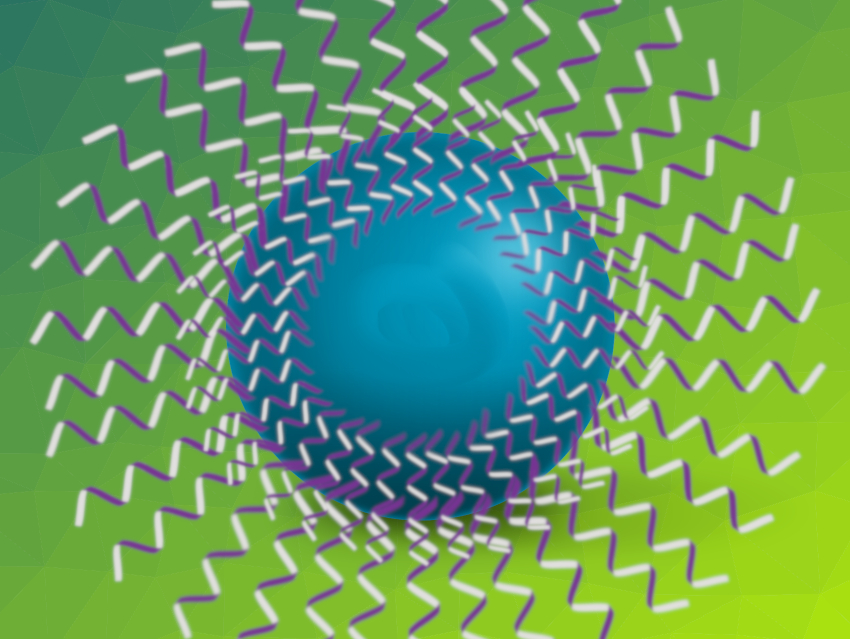Spherical nucleic acids (SNAs) are nanoparticles functionalized with a high density of DNA strands. SNAs are usually synthesized from thiol-functionalized DNA and gold nanoparticles (AuNPs) in solution. Salt is used to reduce the electrostatic repulsion between these two reactants. However, it also promotes nanoparticle agglomeration, which leads to a need for stepwise salt addition and prolonged aging. Maximizing DNA loadings, thus, is usually a lengthy process.
Zhaoxiang Deng, University of Science and Technology of China, Hefei, and colleagues have developed a rapid synthesis of SNAs with record-high DNA density. The team first prepared an aqueous solution of AuNPs, thiolated DNA, and a salt such as NaCl. The solution was brought into contact with a butanol phase. This led to instant dehydration of the mixture and the formation of solid SNA particles. These solids could then be rehydrated and harvested in the form of SNAs with the desired DNA anchoring via Au–S bonding.
According to the researchers, this approach allows unprecedented DNA densities on the SNAs—an increase up to a factor of three compared with state-of-the-art DNA conjugation strategies. The process is very fast, with the overall synthesis taking less than a minute.
- Flash Synthesis of Spherical Nucleic Acids with Record DNA Density,
Yan Hao, Yanjuan Li, Lei Song, Zhaoxiang Deng,
J. Am. Chem. Soc. 2021.
https://doi.org/10.1021/jacs.1c00568




